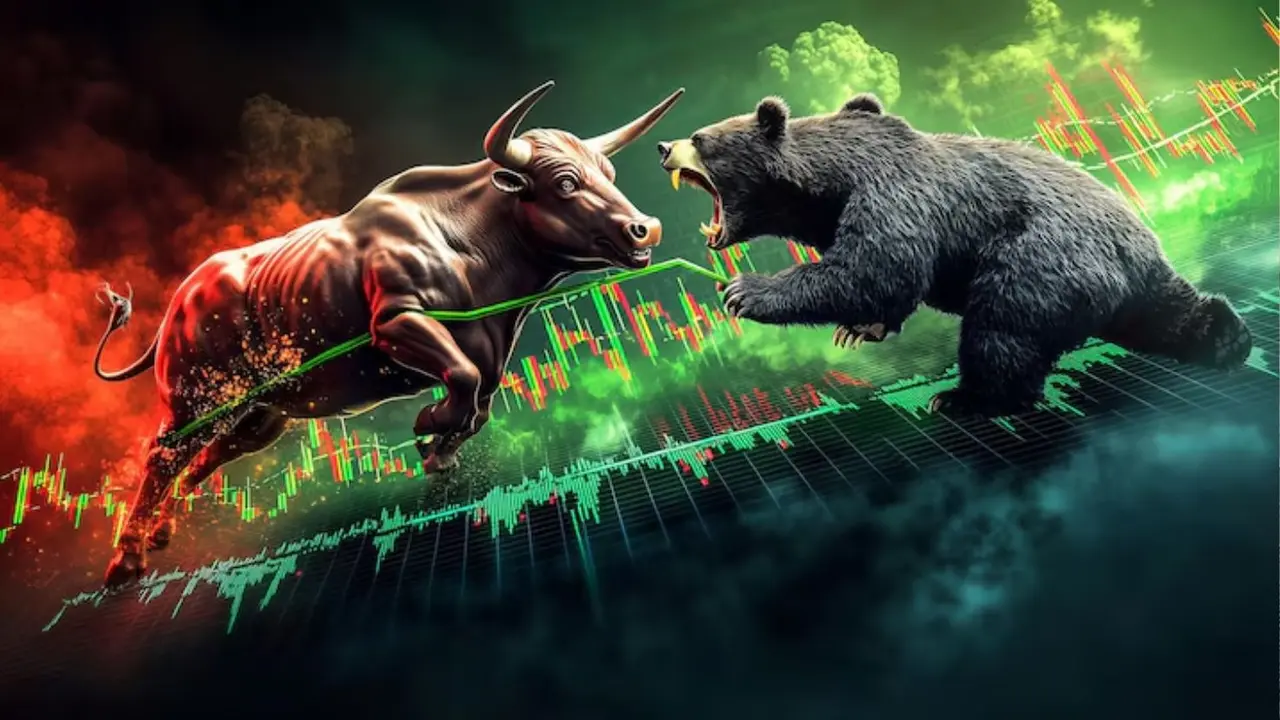Updated 23 June 2025 at 11:46 IST
Crude Spike Jolts Stock Market: Which Sectors Are Falling & What Should Investors Do Now?
The surge in oil prices rattled investor sentiment, dragging down shares of oil marketing companies, aviation, and paint firms. As worries mount over inflation and supply disruptions, investors are left wondering what lies ahead — and where to invest safely.
- Republic Business
- 4 min read

OMC Stock Today: Indian stock markets opened sharply lower on Monday as geopolitical tensions in the Middle East flared up, sending Brent crude oil prices to their highest levels since January.
The BSE Sensex plunged 840 points to 81,567.68, while the NSE Nifty slipped 253 points to 24,858.75 in early trade, reflecting widespread investor nervousness.
The fall in equities came after the United States launched airstrikes on three major Iranian nuclear sites — Fordow, Natanz and Isfahan — over the weekend, joining Israel in its ongoing conflict with Iran.
The move marked a dramatic escalation, triggering fears of further disruption in global oil supplies, especially if Iran retaliates by closing the strategic Strait of Hormuz, a key oil transit chokepoint.
Advertisement
Crude Oil Spikes
Brent crude futures surged nearly 2% to $78.52 per barrel, with intraday spikes taking it past $81 — a five-month high. US West Texas Intermediate (WTI) crude also rose over 2% to $75.35 per barrel. According to Goldman Sachs, if oil flows through the Strait of Hormuz are halved, Brent prices could briefly spike to $110.
India, which imports over 85% of its crude needs and half of its gas requirements, is particularly vulnerable to such oil shocks. This sensitivity was reflected in the selloff in crude oil-dependent sectors.
Advertisement
Sector Impact: OMCs, Aviation, Paints See Sharp Declines
Stocks of oil marketing companies (OMCs) such as BPCL (down 1.37%), IOC (down 1.19%), and HPCL (down 1.99%) fell due to fears of rising input costs. In the aviation sector, SpiceJet dropped 2.47%, and InterGlobe Aviation (IndiGo) was down 2.24%, as higher oil prices translate into increased fuel expenses.
Paint and adhesive companies also saw declines since crude oil derivatives are key raw materials. Kansai Nerolac Paints slipped 3%, Berger Paints dropped 2%, Asian Paints fell 1.38%, and Akzo Nobel India was down 0.42%.
Broader Energy Stock Movement
Among broader energy stocks, ONGC declined 0.42%, OIL India dropped 0.45%, and GAIL was down 0.74%. Even heavyweight Reliance Industries, a major player in petrochemicals and refining, saw its stock fall 1.14% to ₹1,448.
On the other hand, city gas distribution players like IGL and Adani Total Gas managed to stay in the green, edging up 0.29% and 0.28%, respectively, possibly due to stable domestic demand and contract-based pricing.
Crude Shock Jolts Market: How Investors Should Respond
Indian markets were rattled on Monday as oil prices spiked sharply following U.S. airstrikes on Iranian nuclear facilities. While the BSE Sensex and NSE Nifty opened deep in the red, crude-sensitive sectors like oil marketing, aviation, and paints saw the sharpest sell-off.
However, experts urge investors to stay calm and look beyond the noise.
“Crude Oil Is Jittery”: Expert Weighs In
Market expert Ajay Bagga noted that while oil surged more than 2% in early Asia trading, overall market falls have been relatively contained. “0.5% to 0.7% falls in markets are frankly par for the course,” he said, cautioning against panic.
The key concern, according to Bagga, is the possibility of “Iranian asymmetric retaliation”, which could lead to “inordinate market volatility”. He emphasised that crude remains jittery as “its 24% supply route is under potential closure threat,” referencing the critical Strait of Hormuz.
Despite dramatic headlines, Bagga believes the current conflict doesn’t point to a global war. “It is not WWIII; no one wants that,” he stated, advising investors to view dips as opportunities. “Geopolitical conflicts historically represent good buying opportunities… Cash has good optionality in this situation.”
What's Next?
Bagga believes the markets may remain volatile until Iran’s next move is clear. “If regime change remains the endgame, then we continue with these volatile markets. Otherwise, expect a détente soon, maybe within this week,” he said.
For now, SIP investors are advised to stay the course, and those with spare cash should consider deploying it gradually on dips. Bagga summed it up: “Investors should remind themselves that not all conflicts derail markets—sometimes they open doors to value buying.”
Global Concerns Mount
As tensions rose, Japan and South Korea called for de-escalation, worried about the potential blowback on trade and energy security. Analysts now warn that prolonged geopolitical instability could create supply shocks and derail global recovery.
With global crude prices on the rise and India's heavy dependence on imported oil, investors are bracing for more volatility in the days ahead.
Disclaimer: The views expressed in this article are purely informational, and Republic Media Network does not vouch for, promote or endorse any opinions stated by any third party. Stock market and Mutual Fund investments are subject to market risks, and readers are advised to seek expert advice before investing in stocks, derivatives and Mutual Funds.
Published By : Anubhav Maurya
Published On: 23 June 2025 at 11:36 IST
